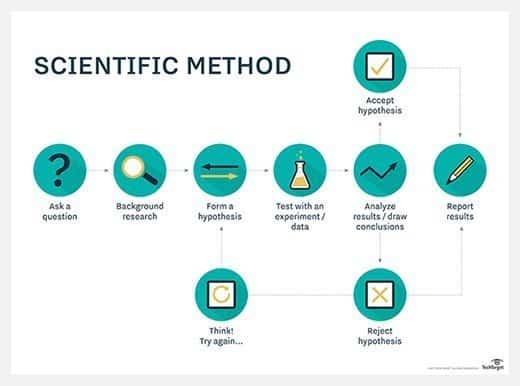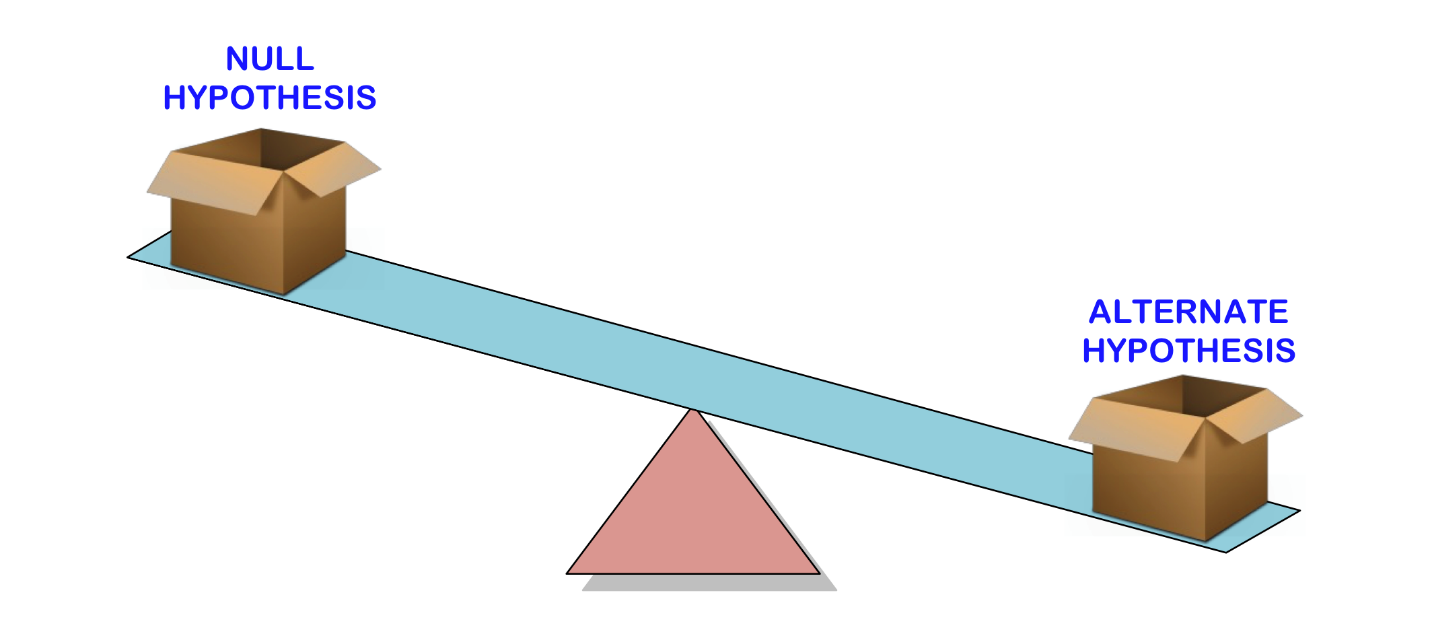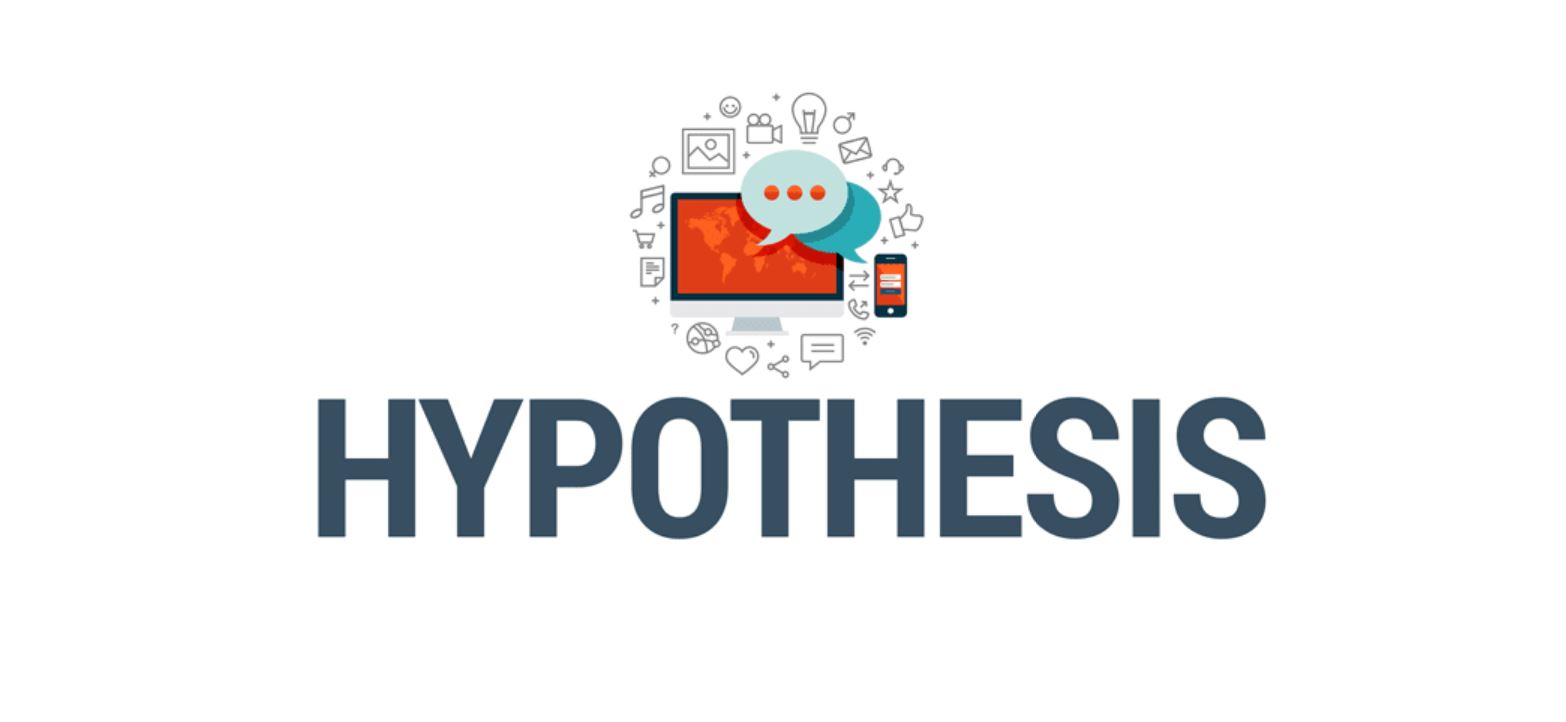What first comes to your mind when someone mentions the word hypothesis? For many students, terms such as prediction, dependent variables, and independent variables come to mind.
Primarily, a hypothesis is a statement derived from a research question, subject to debate, and can be proven or disapproved based on scientific research methods such as objective observations, lab experiments, and statistical analysis.
A hypothesis predicts an outcome based on evidence, knowledge, or theories and it forms the initial point of an investigation.
You already know how to write a hypothesis.
You also know about hypothesis vs research question.
If you haven’t looked at the two in detail, we suggest that you look at the two posts for more insights.
In this lesson, we’ll look at some examples of hypothesis to help you understand how you can formulate your own.
Let’s get started.
Can You Prove a Hypothesis?
Since a hypothesis is an assumption of an expected result from a scientific experiment, you can’t prove it to be correct.
You can only reject or support it depending on the results that you get from the experiment.
It’s important to avoid references that try to prove a theory with 100% certainty when formulating a hypothesis because there may exist solid evidence that refutes the theory.
What’s the Purpose of a Hypothesis?
A hypothesis describes a research study in correct terms and provides a basis that you can use to evaluate and prove the validity or invalidity of a specific research.
Because hypothesis helps to analyze the scientific validity of research methodologies, researchers can assume an almost accurate probability of the progress of failure of a research.
Moreover, it’s only by formulating a hypothesis that a researcher can easily establish a relationship between a theory and a research question.
Example of Hypothesis
To make things easier for you, we’ll give you examples for each type of hypothesis. So whether you’re struggling to formulate a concrete hypothesis or you need some ideas to add to your checklist, this guide is for you.
1. Simple Hypothesis
The hypothesis predicts the outcome between an independent (cause) and a dependent variable (effect).
Examples:
- Getting 6 to 8 hours of sleep can improve a student’s alertness in class
- Excessive consumption of alcohol can cause liver disease
- Smoking cigarette can cause lung cancer
- Drinking a lot of sugary beverages can cause obesity
2. Complex Hypothesis
A complex hypothesis gives a relationship between two or more independent and dependent variables.
Examples
- Obese persons who continue to eat oily foods are likely to accumulate high cholesterol and develop heart complications
- Individuals who live in cities and smoke have a higher chance of developing respiratory disease and suffer from cancer
- Overweight adults who want to live long are more likely to lose weight
3. Directional Hypothesis
This kind of a hypothesis gives a researcher or student the direction he or she should follow to determine the relationship between a dependent and an independent variable.
Examples:
- Boys perform better than girls in school
- The prediction that health decreases as stress decreases
4. Non-directional Hypothesis
It’s the opposite of a directional hypothesis, which means it doesn’t show the nature of the relationship between dependent and independent variables.
Example:
- The likelihood that there will be a difference between the performance of boys and girls
5. Associative and Causal Hypothesis
An associative and causal hypothesis uses statistical information to analyze a sample population from a specific area.
Examples:
- 13% of the US population are poor
- The current rate of divorce in the US stands at the rate of 80% because of irreconcilable differences
- Nearly 40% of the Savannah population lives past the age of 60
6. Null Hypothesis
A null hypothesis exists where there’s no relationship between two variable. A researcher can also formulate a null hypothesis if they don’t have the information to state a scientific hypothesis.
Examples:
- There is no significant change in an individual’s work habit if they get more than 6 hours of sleep
- There’s no significant change in health status if you drink root beer
- Age doesn’t have an effect on someone’s ability to write Math assignments
7. Alternative Hypothesis
Researchers use an alternative hypothesis (H1) to try to disprove the null hypothesis (H0). In other words, they try to come up with a reasonable alternative that they can use in the place of th null hypothesis.
Examples:
- Your health can increase if you drink green tea instead of root beer
- Your work habits can improve if you get six hours of sleep instead of nine
- You can improve the growth of plant if you use water rich in vitamins instead of distilled water
Null Hypothesis vs Alternative Hypothesis
The table below shows the difference between a null hypothesis and an alternate hypothesis.
Null Hypothesis | Alternative Hypothesis |
|---|---|
This hypothesis clearly states that there’s no relationship or association between two variables | It’s an alternative to the null hypothesis where researchers find statistical importance between two variables |
A researcher either invalidates or rejects the hypothesis | A researcher tries to show that there is a relationship between two variables |
Researchers denote null hypothesis as H0 | Researchers denote alternative hypothesis as H1. |
A null hypothesis gives a possible truth to an event where there’s an absence of an effect | Describes an alternative possible truth in the case where there are some differences or some effects |
This hypothesis signifies no change, no differences between variables, and no effect | This hypothesis shows some change, some effect, and some differences between variables. |
8. Logical Hypothesis
A logical hypothesis is a proposed assumption or explanation with limited evidence.
Examples:
- Creatures that live in the bottom of an ocean use aerobic respiration instead of anaerobic respiration
- Cactus experience successful growth rates than tulips on planet Mars
9. Empirical Hypothesis
By putting a theory to the test, and changing around independent variable, and using observations and experiments, a researcher comes up with an empirical hypothesis also known as a working hypothesis. An empirical hypothesis ceases to be just an idea, assumption or notion.
Examples
- A woman to takes vitamin E grows her hair faster than a woman who takes vitamin K
Note that until you’re able to test a theory for an extended period, the evidence for any claim can only remain logical.




